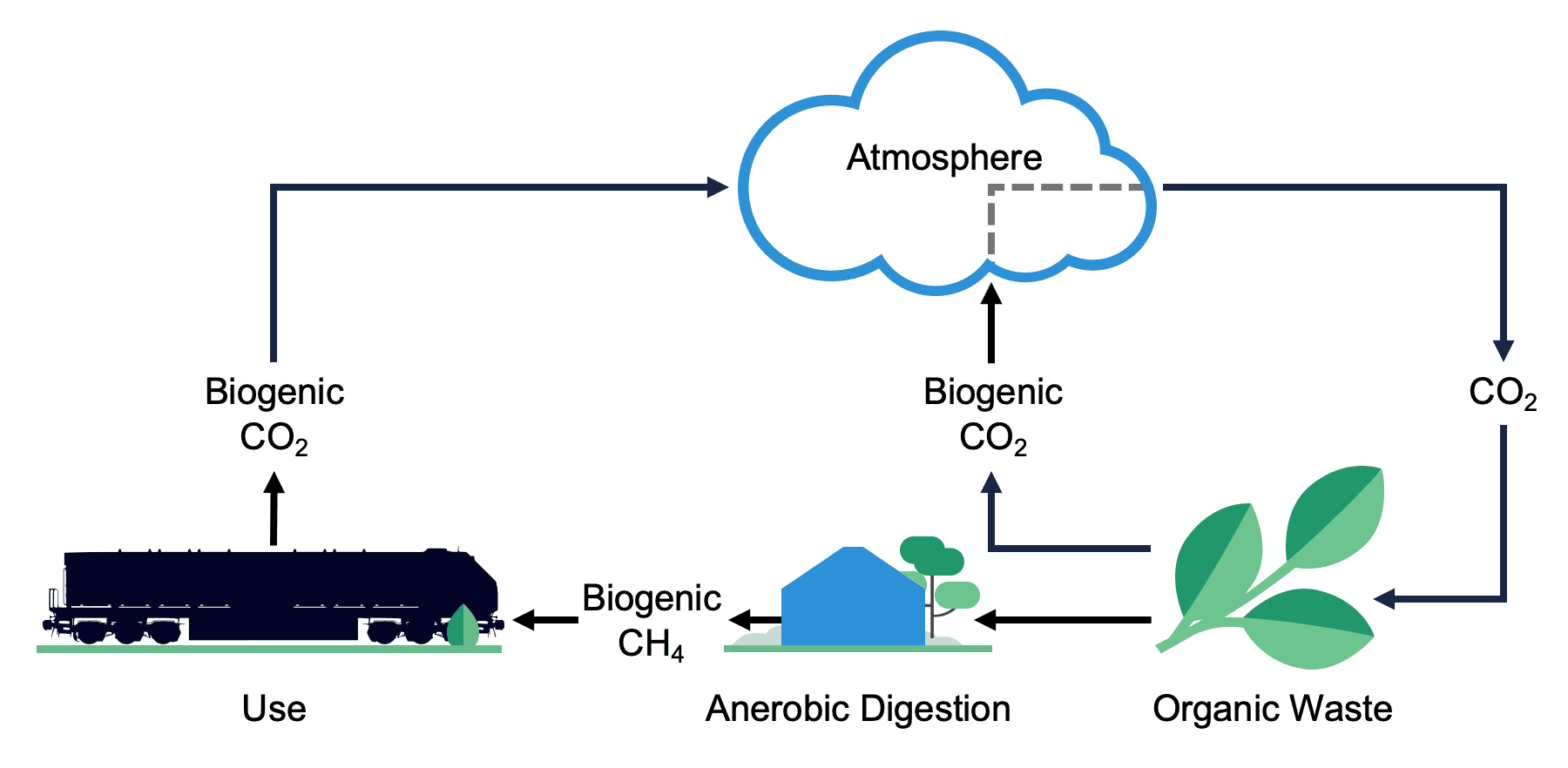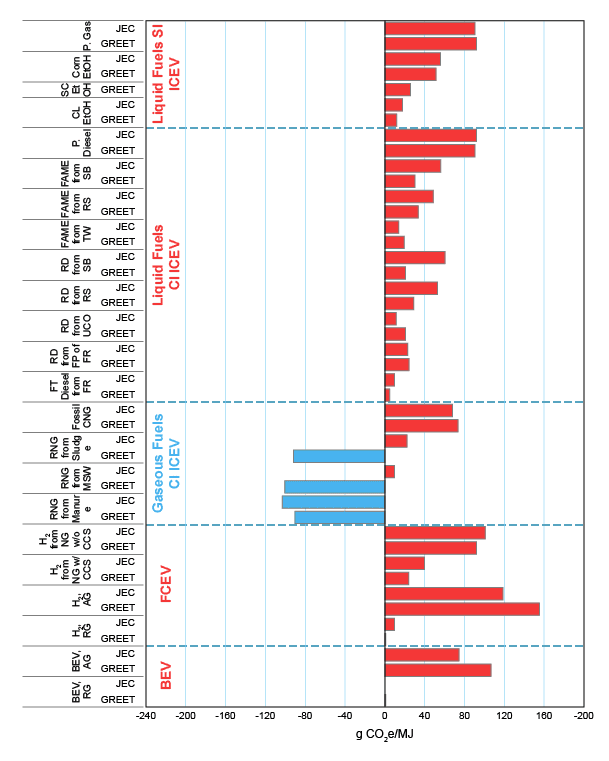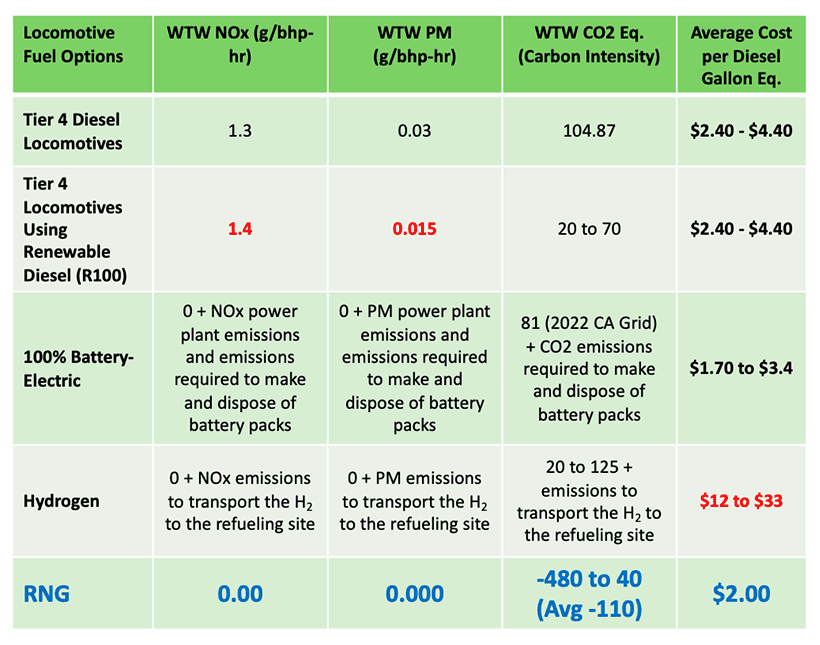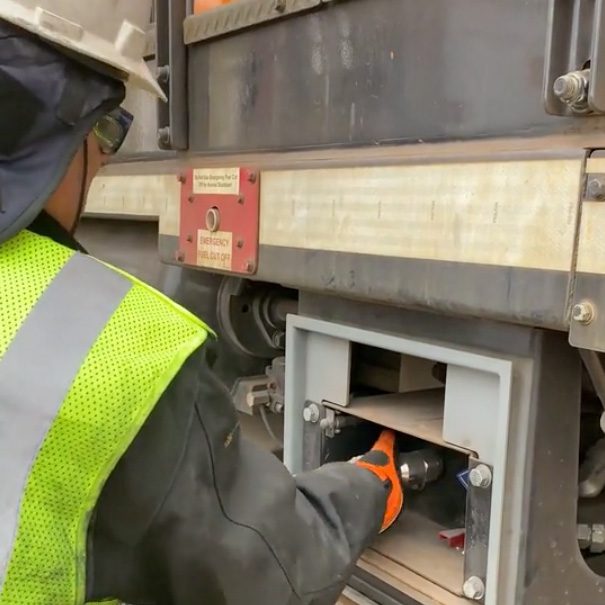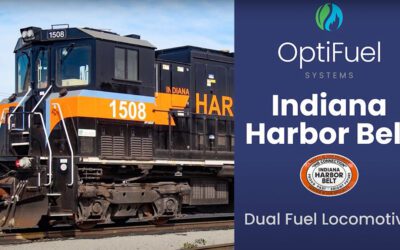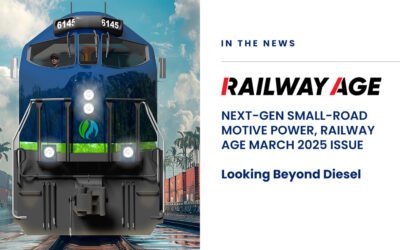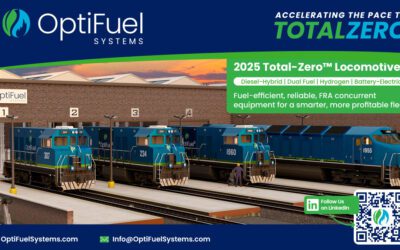Why Renewable Natural Gas?
Renewable Natural Gas (RNG) — produced from 100% existing USA organic waste streams — is the only readily available turnkey renewable fuel with negative carbon intensity, has the lowest cost, and can be conveniently accessed through existing natural gas pipeline infrastructure running along US railroad right of ways.
Renewable Natural Gas (RNG) in a Nutshell
RNG production converts the biogenic GHG emissions already generated by the normal activities of the sectors where organic materials originate, into value-added inputs for the Anerobic Digestion process.
For example, RNG production makes it possible to:
- Capture and convert biogas, containing CH4 produced by landfills.
- Avoid producing CO2-emitting chemical fertilizers by substituting them for digestate, a by-product of the Anerobic Digestion process.
- Significantly reduce methane emissions from manure and wastewater management.
RNG production recovers energy that is already available in organic waste and converts to higher value use. It has the same benefits as conventional natural gas but 100% renewable with a ZERO or NEGATIVE Carbon Intensity.
click to enlarge
Gas that is interchangeable with conventional natural gas since they both share the same pipes, equipment, benefits, and applications
Creating a Sustainable, Circular Economy
With Affordable, Hard-to-Abate, Total-Zero™ Transportation and Mobile Power Assets Using Low-Cost RNG and Hydrogen Fuels
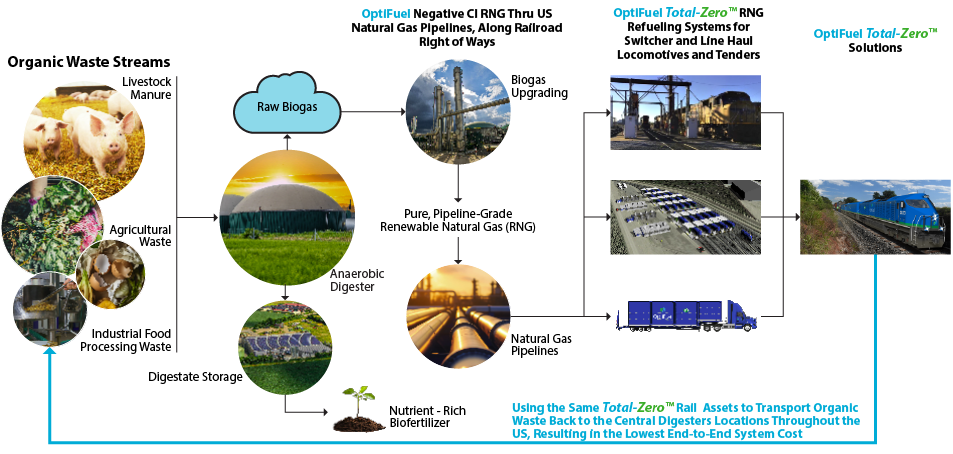
Using a proven Organic Waste-to-Biofuel Process, the Railroads Can Have 1.5 Billion Gallons of $2 a DGE, -130 CI Renewable Natural Gas (RNG) Annually to Decarbonize All 35,000 US Freight Locomotives.
RNG: The Only Negative Carbon Intensity Fuel
According to a recent study from the U.S. Department of Energy, Argonne National Laboratory, and the European Commission, RNG represents the biggest opportunity to reduce well-to-wheel greenhouse gas emissions.
“The results show that in both the U.S. and EU markets, waste-streams-to-energy technologies, such as RNG production via anaerobic digestion of wet waste resources, offer the biggest opportunities to reduce WTW GHG emissions. It must be noted that in Europe the AD biogas is mainly used to produce electricity, and this energy vector can supply the transportation sector and deliver additional environmental benefits (e.g., on local emissions).”
The chart is a comparison of (a) per MJ WTT and combustion results of various fuel production pathways for light-duty powertrains from GREET and JEC modeling. SI: spark ignition; CI: compression ignition; ICEV: internal combustion engine vehicle; FCEV: fuel cell electric vehicle; BEV: battery electric vehicle; P.gas: petroleum gasoline; CL: cellulosic; FAME: fatty acid methyl ester; FT: Fischer–Tropsch; FP: fast pyrolysis; FR: forest residue; RD: renewable diesel; UCO: used cooking oil; SB: soybean; TW: tallow; RNG: renewable natural gas (biomethane); MSW: municipal solid waste; RG: renewable electricity grid mix, AG: U.S./EU average electricity grid mix; CCS: carbon capture and storage.
RNG lowers operating costs.
RNG can be delivered through existing natural gas pipelines that run along railroad right of ways, making it an optimal choice for powering locomotives. With OptiFuel’s connected RNG production and delivery solutions, railroads can lock in favorable pricing and lower operating overhead long term.
RNG is safer.
Lower Flammability Range. RNG has a higher ignition point and a narrower flammability range compared to hydrogen. This means that RNG requires a higher concentration in the air to ignite, making it less prone to accidental combustion.
A History of Safety. The natural gas industry has a long history of safe handling, transportation, and usage. Safety protocols and practices developed for natural gas can be applied to RNG.
Risk Mitigation. Reduces exposure to volatility in fossil fuel markets, providing a more stable and predictable fuel supply.
Latest News
OptiFuel Locomotives: Dual-Fuel Refueling, Rapid Modular Assembly, and On-Track Freight Operations
Watch how OptiFuel Systems is transforming freight rail with next-generation locomotive technology. This video features three real-world scenes that showcase OptiFuel...
Railway Age – Looking Beyond Diesel
Check out this article just published in Railway Age: Looking Beyond Diesel and see how OptiFuel Systems is developing alternative fuel technologies that can accommodate the varying needs of short line operations.
2025 OptiFuel Total-Zero™ Switcher Locomotive Brochure
Click the button below to download OptiFuel's 2025 Total-Zero™ Locomotives Brochure to learn more about: OptiFuel's fuel-efficient, reliable, FRA concurrent equipment for a...
